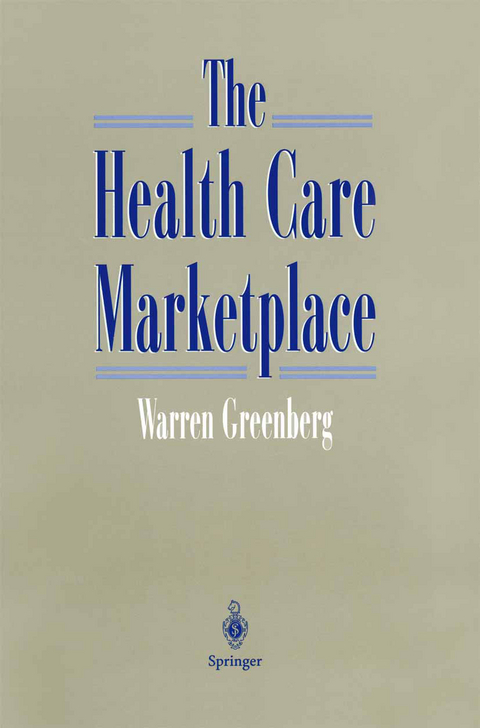
The Health Care Marketplace
Seiten
2012
|
Softcover reprint of the original 1st ed. 1998
Springer-Verlag New York Inc.
978-1-4612-7237-3 (ISBN)
Springer-Verlag New York Inc.
978-1-4612-7237-3 (ISBN)
This book is an economist's view of the health care marketplace. At one time, economists pointed to the asymmetry of information between the physician provider and the patient as one difference between health care and other industries. Indeed, the advent of managed care has propelled health care into a business.
This book is an economist's view of the health care marketplace. It exam ines the incentives of physicians, patients, firms and the role of government in the health care sector in a world of limited resources. Several themes run through this book. First, health care is a business. To an economist this means that firms maximize profits. Perhaps this is not always so, but I have yet to see a better theory of how health care firms behave. The health care industry, therefore, is not much different in eco nomic terms from other industries. At one time, economists pointed to the asymmetry of information between the physician provider and the patient as one difference between health care and other industries. Physicians often know a great deal about treating an illness while the patient knows little or nothing. But the movement toward managed care in the United States has partially closed the information gap (although perhaps creating other prob lems). Indeed, the advent of managed care has propelled health care into a business. Information is another theme of the book.
This book is an economist's view of the health care marketplace. It exam ines the incentives of physicians, patients, firms and the role of government in the health care sector in a world of limited resources. Several themes run through this book. First, health care is a business. To an economist this means that firms maximize profits. Perhaps this is not always so, but I have yet to see a better theory of how health care firms behave. The health care industry, therefore, is not much different in eco nomic terms from other industries. At one time, economists pointed to the asymmetry of information between the physician provider and the patient as one difference between health care and other industries. Physicians often know a great deal about treating an illness while the patient knows little or nothing. But the movement toward managed care in the United States has partially closed the information gap (although perhaps creating other prob lems). Indeed, the advent of managed care has propelled health care into a business. Information is another theme of the book.
1. Introduction to the Economics of Health Care.- 2. Physician Services Industry.- 3. Hospital Industry.- 4. Insurance, Managed Care, and System Integration.- 5. Employer and Employee as Purchasers of Health Care Services.- 6. Health Insurance in the Public Sector.- 7. Long-Term Care Industry.- 8. Antitrust in the Health Care Sector.- 9. Regulation and Competition in Health Care.- 10. Technology and Rationing in Health Care.- 11. Insights from Canada, Israel, and the Netherlands.
| Zusatzinfo | IX, 170 p. |
|---|---|
| Verlagsort | New York, NY |
| Sprache | englisch |
| Maße | 155 x 235 mm |
| Themenwelt | Wirtschaft ► Betriebswirtschaft / Management ► Logistik / Produktion |
| Wirtschaft ► Betriebswirtschaft / Management ► Unternehmensführung / Management | |
| ISBN-10 | 1-4612-7237-8 / 1461272378 |
| ISBN-13 | 978-1-4612-7237-3 / 9781461272373 |
| Zustand | Neuware |
| Haben Sie eine Frage zum Produkt? |
Mehr entdecken
aus dem Bereich
aus dem Bereich
Grundlagen - Spezialthemen - Übungen
Buch | Softcover (2022)
Springer Gabler (Verlag)
CHF 55,95


